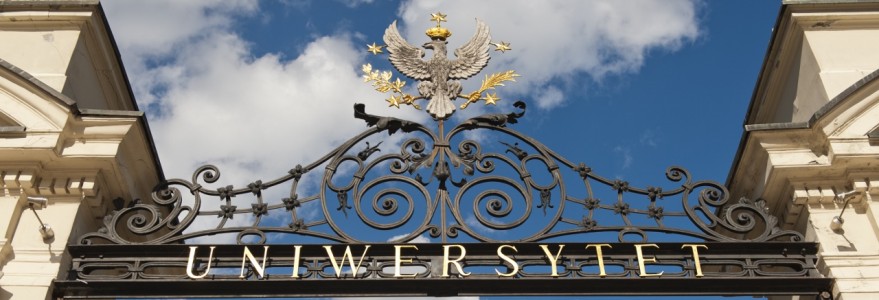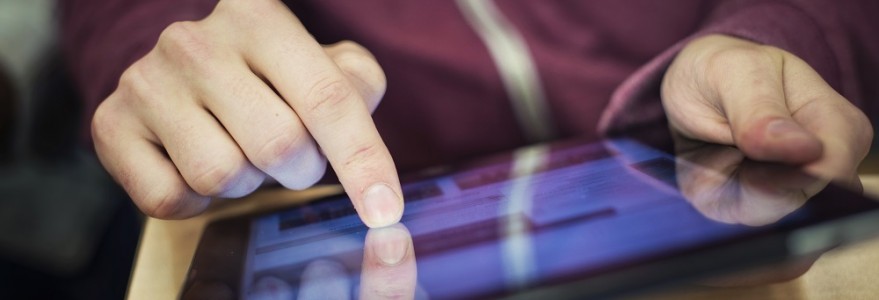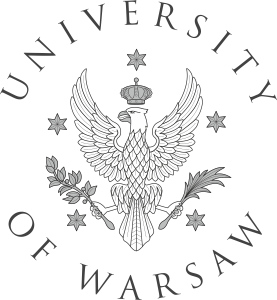31 stycznia 2020

On January 30, 2020, the World Health Organization announced a state of emergency for public health of international significance in connection with the outbreak of the 2019-nCoV epidemic.
With reference to the recommendations of the World Health Organization and the Ministry of Foreign Affairs, the University of Warsaw recommends:
- cancellation of individual and group trips of employees, doctoral students and students to China;
- addressing Chinese UW partners with a suggestion to postpone the visits of delegations from Chinese institutions until the World Health Organization cancels the state of public health emergency.
At the same time, we remind you of the recommendations of the World Health Organization on the prevention of coronavirus infections (https://www.who.int/emergencies/diseases/novel-coronavirus-2019/advice-for-public).
WHO experts recommend:
- “Frequently clean hands by using alcohol-based hand rub or soap and water;
- When coughing and sneezing cover mouth and nose with flexed elbow or tissue – throw tissue away immediately and wash hands;
- Avoid close contact with anyone who has fever and cough;
- If you have fever, cough and difficulty breathing seek medical care early and share previous travel history with your health care provider;
- When visiting live markets in areas currently experiencing cases of novel coronavirus, avoid direct unprotected contact with live animals and surfaces in contact with animals;
- The consumption of raw or undercooked animal products should be avoided. Raw meat, milk or animal organs should be handled with care, to avoid cross-contamination with uncooked foods, as per good food safety practices.”
According to the recommendations of the Ministry of Health, people who have recently been to China or in contact with such persons and who have alarming symptoms (temperature above 38 degrees Celsius, coughing, shortness of breath) should report to hospital wards of infectious diseases. Detailed information on symptoms and a list of hospital units is available at: https://www.gov.pl/web/zdrowie/byles-w-chinach-i-zle-sie-czujesz-sprawdz-co-robic.
Central administration units of the University of Warsaw are in direct contact with Chinese universities and are monitoring the development of the situation.
We remind members of our community who would like to use psychological support in connection with the coronavirus epidemic that the University of Warsaw Psychological Counselling Center offers such services, including “Walk-in clinic” (http://cpp.uw.edu.pl/walk-in-clinic/).
Current reports on the situation related to the threat of 2019-nCoV coronavirus can be found at:
- the Chief Sanitary Inspectorate,
- the Ministry of Foreign Affairs,
- the Ministry of Health,
- World Health Organization,
- European Center for Disease Prevention and Control.
Source: www.en.uw.edu.pl
27 stycznia 2020
The Centre of New Technologies invites to a seminar by
Michał Szymański, PhD
Intercollegiate Faculty of Biotechnology of the University of Gdansk and Medical University of Gdańsk
Title: An interplay between DNA replication and repair in human mitochondria
Date: January 31st, 2020 at 12 p.m.
Venue: Centre of New Technologies, Banacha 2C,
Lecture Hall 0142 (Ground floor)
Host: prof. Agnieszka Chacińska
Human mitochondrial DNA (mtDNA) replication is initiated from two different origins of replication, OriH and OriL where mitochondrial RNA polymerase (POLRMT) initiates the synthesis of short RNA primers. These primers are then used by human mitochondrial DNA polymerase γ (Polγ) to initiate DNA synthesis. Once initiated, both H-strand and L-strand synthesis proceed continuously until two new daughter molecules are formed. The RNA primers at the 5′-ends of the nascent strands must be removed by nucleases and replaced by DNA. Failure to remove ribonucleotides from mtDNA may impair ligation and DNA synthesis, causing DNA lesions which during subsequent replication cycles can cause double-strand mtDNA breaks and deletions. Number of nucleases have been implicated in primer removal but they either lack necessary enzymatic activity or their mitochondrial localization is under debate. Thus, the molecular mechanism RNA primer removal and subsequent termination of DNA replication in human mitochondria is not well understood. I will demonstrate that human mitochondrial nuclease, crucial for mitochondrial DNA repair, is efficient in removal of RNA primers and in concert with other mitochondrial factors promotes processing and termination of mtDNA replication.
20 stycznia 2020
The Centre of New Technologies invites to a seminar by
Łukasz Dziewit, Ph.D, D.Sc. and Łukasz Drewniak Ph.D, D.Sc.
Faculty of Biology, University of Warsaw
Title: Metal metabolism in bacteria – from biology to biotechnology
Date: January 24th, 2020 at 12 p.m.
Venue: Centre of New Technologies, Banacha 2C,
Lecture Hall 0142 (Ground floor)
Host: prof. Joanna Trylska
The treatment of metal-contaminated regions (especially those co-contaminated with other toxic substances) remains one of the most expensive environmental challenges currently faced by many countries. It appears that the employment of microorganisms in biotransformation of metals is a good solution to this problem. However, a key step in the waste management technologies is the understanding of the mechanism of various metals resistance, metabolism and transformation. During the seminar we will present the results of our analyses of metal metabolism in various bacteria (including extremophilic strains from Antarctic regions and ancient mines) and how we exploit this knowledge for development of novel environmental biotechnologies. We will show how we combine the classical environmental microbiology with recent advances in genomics and metagenomics for more successful identification of microbial traits that may maximize the benefits of metals bioremediation technologies. Finally, we will present examples of environmental technologies developed in our laboratory and successfully implemented in Poland and abroad.
16 stycznia 2020
The University of Warsaw Library prolongs its working hours. “BUW for owls” starts on 20th January. Students who will be preparing for exams now can use the library until 5 am.
Mid-year assessment period at the University of Warsaw begins on 28th January. The University of Warsaw Library meets expectations of students and prolongs its opening hours. Students who prefer burning the midnight oil can take part in “BUW for owls” action. From Monday 20th January to Saturday 1st February, the University of Warsaw Library will be open until the first-morning bus meaning until 5 am.
- On Saturday (January 25th and February 1st) the Library will be open from 9 am to 9 pm, on Sunday (January 26th and February 2nd) the Library will be open from 3 pm to 8 pm.
- After 10 pm Information Desk, Reading Room and open stacks on levels 1, 2 and 3 will be available;
- After 10 pm from Monday to Friday, and on Sunday, the Circulation Desk and the Closed Stacks will be closed.
- The Cloakroom next to Costa Coffee will be open until 5 am.
Only valid library cards holders can take part in “BUW for owls”.
We kindly remind you that during the nights no other drinks but bottled water and no food is allowed in the library.
More information >>
Source: www.en.uw.edu.pl
15 stycznia 2020
PhD position is available within OPUS 14 NCN grant „Mechanistic investigations for local thermal oxidation of thin MoS2”. Principal Investigator: dr hab. Robert Szoszkiewicz, prof. ucz. Deadline for applications: 16 February 2020. For more info see >> pdf
14 stycznia 2020
The Centre of New Technologies invites to a seminar by
Witold Konopka, PhD
Nencki Institute of Experimental Biology, Warsaw
Title: microRNA dependent regulation of neuronal plasticity in feeding behavior
Date: January 17th (Friday)
Time: at 12 p.m.
Venue: Centre of New Technologies, Banacha 2C,
Lecture Hall 0142 (Ground floor)
Host: prof. Marta B. Wiśniewska
Eating behavior of animals is controlled by neuronal circuits in the brain, mainly located within the hypothalamus. Hunger is induced by physiological signals e.g. leptin, informing the brain about energy storages in adipose tissue or glucose deficits during hypoglycemia. Additionally, other non-physiological factors may influence when and what do we eat. Those factors include sensory cues of especially palatable food or are entrained by circadian rhythm. Regulation of activity of neurons involved in the control of feeding and metabolism is achieved on many levels of gene expression. We are especially interested in post-transcriptional level of protein translation regulated by microRNAs. These short RNAs serve as a guides for the translation inhibiting complex RISC. We have generated transgenic mice with a mutation of the Dicer gene restricted to forebrain neurons of adult mice. The Dicer nuclease is an essential enzyme in the biogenesis of microRNAs. Mice lacking the Dicer gene in the arcuate nucleus of the hypothalamus developed an obesity phenotype due to increased feeding of regular chow diet. We have also examined how different diets: standard, high fat diet, Western diet and ketogenic diet influence microRNA levels in the blood and preference of mice towards consumed diet.
09 stycznia 2020

The 4EU+ Alliance appointed its Secretary General. This post has been taken by Volker Balli. The Secretary General will be heading the Alliance office in Paris and will be leading a cross-institutional team comprised of staff at all six 4EU+ member universities.
Volker Balli will drive and oversee the implementation of all activities of 4EU+, including the European University Initiative. He will also contribute to the overall development of the vision, mission and strategy of the Alliance and foster external contacts with 4EU+.
More about his career is available on the 4EU+ website.
4EU+ comprises six universities: Charles (Czech Republic), Heidelberg (Germany), Sorbonne (Paris), Warsaw (Poland), Milan (Italy) and Copenhagen (Denmark) which are public and research-intensive institutions. The Alliance has the ambition to create an integrated European university system, capable of empowering students, researchers and society as a whole to take on the challenges facing Europe. For more information, please visit www.4euplus.eu.
Source: www.en.uw.edu.pl
07 stycznia 2020

On 17th January, UW Welcome Point organises two information meetings for students who would like to get information on how to legalise their stay in Poland.
In the programme of the meetings:
- The legalisation of residence in Poland (visa, permanent residence permit)
- Differences between a student visa and a temporary residence permit
- The procedure of application for a residence permit
- Taking up a job during studies
- The legalisation of stay after obtaining a university diploma
- Polish descent and Card of the Pole holders’ rights
Both meetings will take place on 17th January in the Auditorium Maximum building (hall “A”) on the Main Campus.
Registration is available on the Welcome Point website.
Source: www.en.uw.edu.pl
03 stycznia 2020
The Centre of New Technologies invites to a seminar by
Joanna Rutkowska, PhD, DSc
Institute of Environmental Sciences, Jagiellonian University, Cracow
Title: „Family secrets revealed: meta-analytical insights into non-genetic maternal and paternal effects”
Date: 8th January 2020 (Wednesday)
Time: 1:00 pm
Venue: Centre of New Technologies, Banacha 2C,
Lecture Hall 0142 (Ground floor)
Host: Prof. Marta Szulkin




